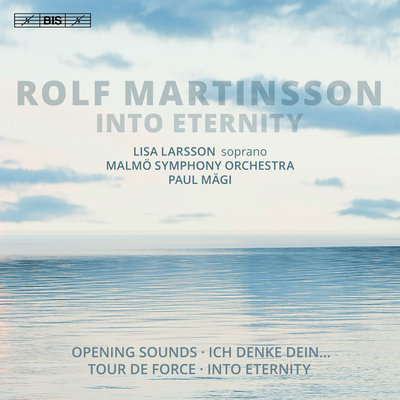Lyrics by Rainer Maria Rilke, Johann Wolfgang von Goethe, Joseph von Eichendorff
1 - Nearness of the Beloved One
Johann Wolfgang von Goethe (1749-1832) Translation: Elaine Danforth
I think of you, when on me the sun’s shimmer from the sea does glint;
I think of you, when the moon its fainter glimmer in the stream does paint.
I see you here, when up from the distant road the dust is raised;
In the deepest night, when on the narrow bridge the traveler shakes.
I hear you here, when with yonder muffled sound the wave does rise
In the quiet grove, I often stop to listen, when all grows still,
And I am with you, though you are still so far, To me, you’re near!
The sun sinks down, soon on me shines the stars, If only you were here!
2 - Love Song
Rainer Maria Rilke (1875-1926) Translation: A. Z. Foreman
How shall I hold my soul and yet not touch It with your own? How shall I ever place
It clear of you on anything beyond?
Oh gladly I would stow it next to such Things in the darkness as are never found Down in an alien and silent space
That does not resonate when you resound.
But everything that touches me and you
Takes us together like a bow on two
Taut strings to stroke them to the voice of one. What instrument have we been lain along? Whose are the hands that play our unison?
Oh sweet song!
3 - Blue Hydrangea
Rainer Maria Rilke Translation: Guntram Deichsel
Just like the last green in a colour pot
So are these leaves, withered and wrecked Behind the flower umbels, which reflect
A hue of blue only, more they do not.
Reflections are tear-stained, inaccurate, As if they were about to cease,
And like old blue notepaper sheets They wear some yellow, grey and violet,
Washed-out like on a children’s apron, Outworn and now no more in use:
We contemplate a small life’s short duration.
But suddenly some new blue seemingly is seen In just one umbel, and we muse
Over a moving blue delighting in the green.
4 - The loving woman writes
Johann Wolfgang von Goethe Translation: Edgar Alfred Bowring
THE look that thy sweet eyes on mine impress The pledge thy lips to mine convey,--the kiss,-- He who, like me, hath knowledge sure of this, Can he in aught beside find happiness?
Removed from thee, friend-sever’d, in distress, These thoughts I vainly struggle to dismiss: They still return to that one hour of bliss,
The only one; then tears my grief confess.
But unawares the tear makes haste to dry:
He loves, methinks, e’en to these glades so still,-- And shalt not thou to distant lands extend? Receive the murmurs of his loving sigh;
My only joy on earth is in thy will,
Thy kindly will tow’rd me; a token send!
5 - Moonlit Night
Joseph von Eichendorff (1788-1857) Translation: Walter A. Aue
It was like Heaven’s glimmer caressing Terra’s skin,
that in Her blossoms’ shimmer She had to dream of Him.
The breeze was gently walking through wheatfields near and far; the woods were softly talking
so bright shone ev’ry star.
And, oh, my soul extended
its wings through skies to roam: O’er quiet lands suspended, my soul was flying home.

